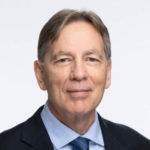I’ve been watching the ripple effects of People v. Sanchez (2016) 63 Cal.4th 665, which has been labeled “a paradigm shift” regarding out-of-court statements and expert testimony under California hearsay law. (People v. Ochoa, 7 Cal. App. 5th 575, 588 (2017).) Sanchez boils down to the difference between an expert relying on hearsay case-specific facts (which has always been permissible) and an expert relating those facts to the jury (which Sanchez now prohibits unless the hearsay problem is solved). But what about summary judgment motions?
In essence, Sanchez repudiated a myth of the California Supreme Court’s own making that allowed expert testimony relating hearsay case-specific facts because the jury could consider them without considering those facts for the truth. But as Sanchez put it, in reality, “those statements are necessarily considered by the jury for their truth.” So in the new Sanchez world, attorneys must now develop an eye and an ear for case-specific facts that are hearsay and look for ways to overcome the hearsay problem. So far, no published decision in a civil appeal has reversed a judgment on Sanchez grounds.
Earlier this year, the Court revisited summary judgment in the context of a tardy expert disclosure. (Perry v. Bakewell Hawthorne LLC (2017) 2 Cal.5th 536.) The Court noted that a summary judgment motion “shall consider all of the evidence set forth in the papers, except that to which objections have been made and sustained.” (Code Civ. Proc. § 437c, subd. (c), italics added.) And, the Court observed, section 437c has always required the evidence relied on in supporting or opposing papers to be admissible. (See Reid v. Google, Inc. (2010) 50 Cal.4th 512, 528.) The Perry Court held that “when the time for exchanging expert witness information has expired before a summary judgment motion is made, and a party objects to a declaration from an undisclosed expert, the admissibility of the expert’s opinion can and must be determined before the summary judgment motion is resolved.” (Perry, supra, 2 Cal.5th at p. 543, emphasis added.)
Of course, in Perry, the admissibility issue was the undisclosed expert. But when it comes to the summary judgment statute and expert declarations, there should be no reason to doubt that the operating principle—that admissibility be determined before the motion is resolved—still applies. Thus, Sanchez highlights an area for additional evidentiary scrutiny. Whereas prior to Sanchez, it was possible to withstand attack on an expert declaration by arguing that any case-specific hearsay facts would not be admitted for their truth (and hence, were not hearsay), Sanchez eliminated such reliance. Therefore, Sanchez also closes the door on the old, not-for-the-truth response at the summary judgment stage. Or at least, it should.
Gary, a State Bar certified appellate specialist, serves as the Chair of Hanson Bridgett’s Appellate Practice. He is on the faculty at U.C. Hastings College of the Law and is also Chair of the Contra Costa County Bar Association’s appellate practice section. He is a frequent contributor to the Daily Journal and other publications.




